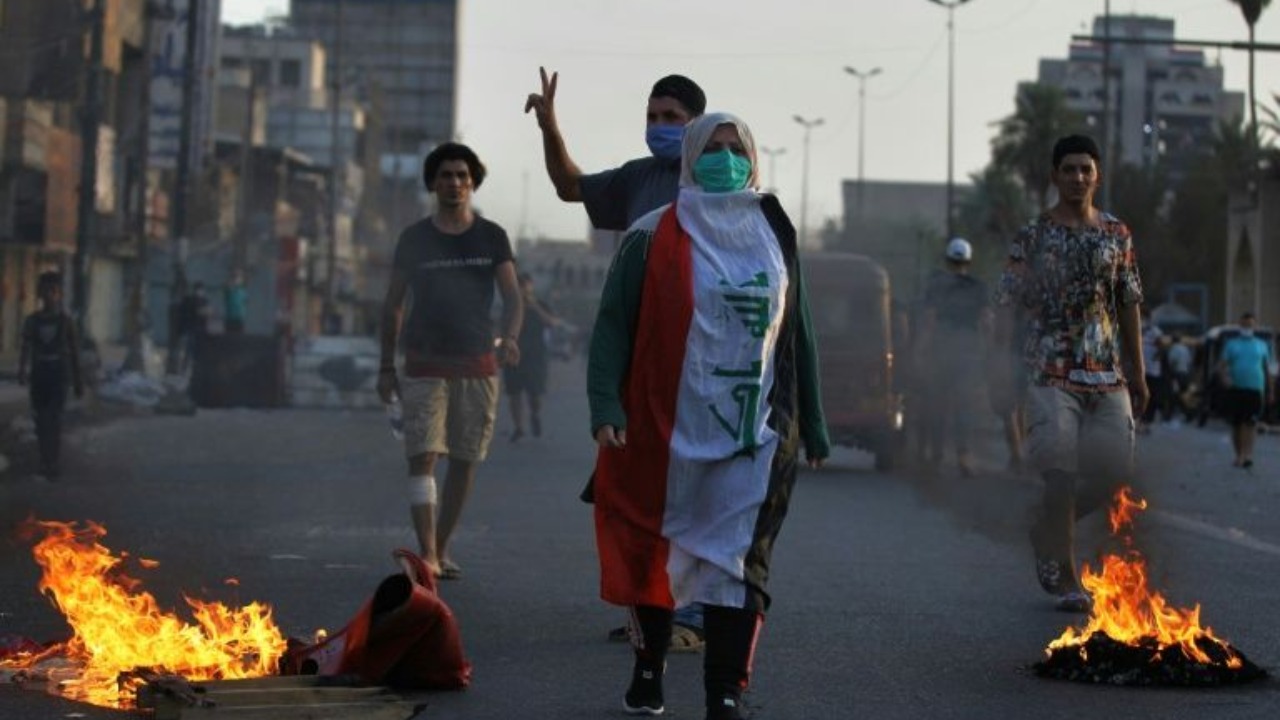Dozens of casualties as Iraqi protests surge

ERBIL (Kurdistan 24) – Popular demonstrations have returned to the Iraqi capital and several southern cities in recent days, during which dozens of participants were either killed or wounded in clashes with security forces in yet another challenge to the four-month-old government of Prime Minister Mustafa al-Kadhimi, whose predecessor resigned as a result of the protest movement that began in October.
Iraqis again took to the streets to demand, among other things, an improved standard of living and improved public services, especially electricity in the sweltering summer heat as temperatures in many parts of the country top 50 degrees Celsius (122 degrees Fahrenheit).
Since the fall of the former Baathist regime in 2003, anti-government demonstrations have been a common sight in Iraq, usually decrying what they see as an endemically corrupt political elite that has failed to address long-held grievances of a beleaguered public.
The last round of mass protests in late 2019 led to the resignation of the entire administration of former Iraqi Prime Minister Adil Abdul Mahdi, under whose watch members of the security forces and Iranian-backed militias were accused of killing over 600 demonstrators and wounding tens of thousands more.
Such rallies reduced in intensity later into 2019 and through early 2020, at first due to rising tensions between the US on one side and Iran and its Iraqi militia proxies on the other. The coronavirus crisis, which has only been worsening in Iraq since late May, has been another major cause of a slowdown in demonstrations.
Late Sunday, Baghdad police dispersed a number of protesters who set tires on fire and cut off a road leading to central Tahrir Square, the main hub of demonstrations since last year. Medical sources indicated that at least three had been killed in the confrontations that ensued.
Similar rallies took place in the south, in what constitutes a true test of the promises that Kadhimi has made on multiple occasions regarding his approach to protesters that he has said is fundamentally less hostile than the previous administration.
The Iraqi High Commission for Human Rights said on Tuesday that it had also confirmed that at least three protesters have been killed since Sunday and 21 others wounded—some of whom are in serious condition—in clashes with security forces. The body also reported that 20 additional people had been wounded during demonstrations in Najaf province.
Members of the police have reportedly struck demonstrations directly with tear gas canisters, the use of which led to the deaths of dozens of people during the mass gatherings in November.
The latest wave of protests comes not long after the United States praised an electrical connection project between Iraq and the Gulf Cooperation Council countries. The Iraqi Ministry of Electricity has previously concluded an agreement with the Gulf Cooperation Council Electric Interconnection Authority, which aims to extend two 300-km electric lines to import energy.
Iraq has long depended on importing Iranian electricity and gas to make up for shortfalls. Due to US sanctions on Iran, Iraq is allowed to import a total of 1,400 megawatts of electricity and 28 million cubic meters of gas from its eastern neighbor.
Plagued by successive crises, Iraq is currently estimated to have the capacity to produce about 13.5 thousand megawatts of electricity, but needs 24 thousand megawatts, nearly double its output.
Kadhimi has said that successive governments have spent about $62 billion on the electricity sector since 2013, but without providing adequate services due to poor planning and corruption, squarely putting the blame on the shortcomings of previous administrations.
“It pains me to see my fellow Iraqis endure power cuts in this hot weather,” he said in a televised address on Monday. “I wish there was a quick solution, but unfortunately, the damage caused by years of sabotage, corruption, and mismanagement cannot be undone overnight.”
The premier affirmed that Baghdad “is pressing ahead with implementing the interconnection agreement linking Iraq’s electricity grid with that of GCC countries.”
He claimed he had “ordered an investigation into what happened [on Monday] in Tahrir Square in Baghdad,” and asked for the results to be presented to him within 72 hours.
Editing by John J. Catherine
